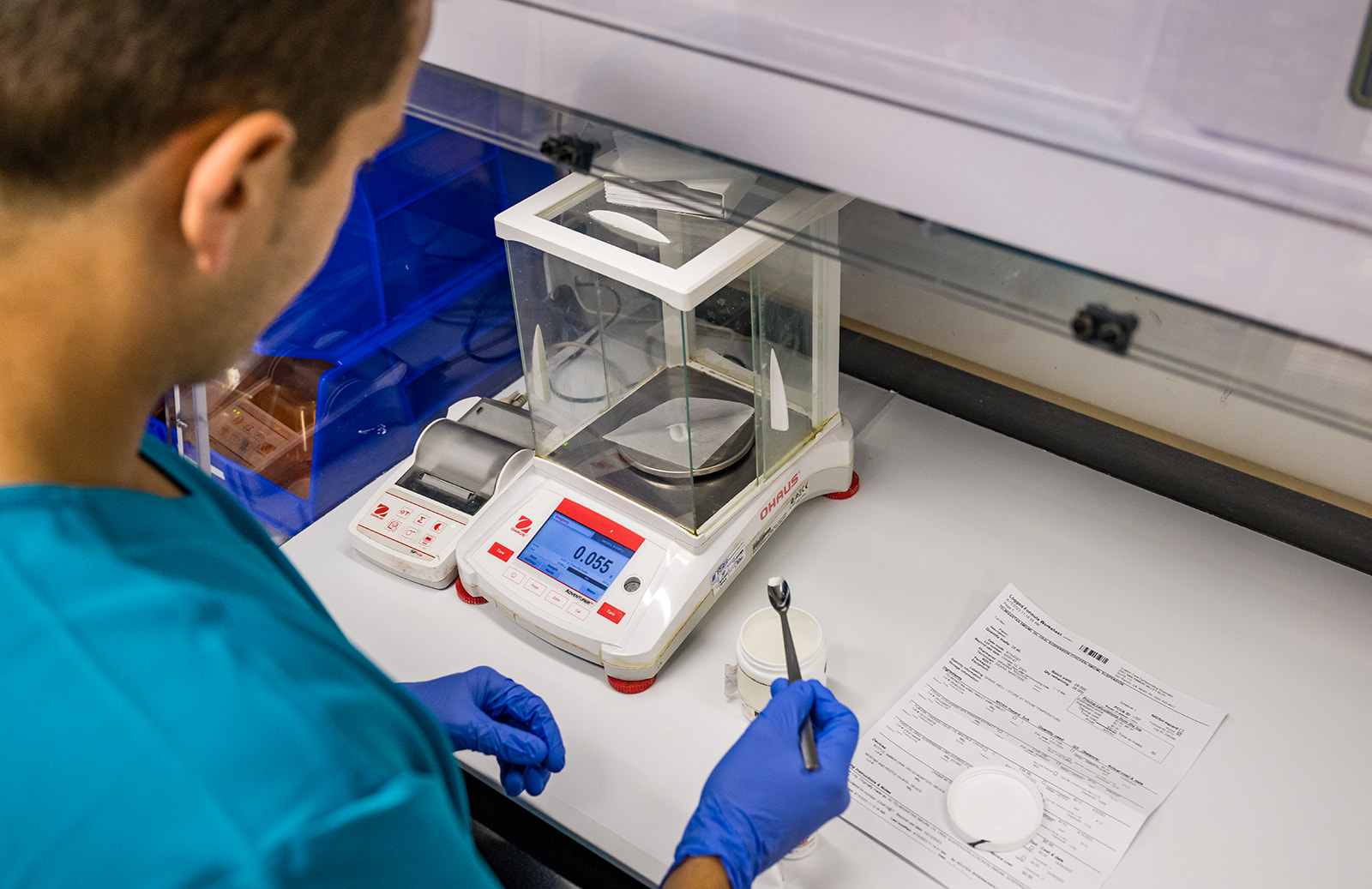-
2551 San Ramon Valley Blvd, Suite 112 San Ramon, CA 94583
- 925.830.4631
- 925.830.0125

In dermatology, individual skin conditions often require tailored treatments. The skin is a delicate organ, so dermatologists frequently find themselves addressing unique symptoms and patient needs on a case-by-case basis.
This is where compounding pharmacies step into the spotlight. Pharmacies like Custom Care Compounding offer solutions beyond the “one-size-fits-all approach” typical of mass-produced medications. Patients with various dermatological issues, such as hyperpigmentation, psoriasis, and eczema, can access treatment designs for their particular situation by working with their healthcare provider to receive custom compounded formulations.
Tailored Solutions for Skin Discoloration
Hyperpigmentation, characterized by dark spots and uneven skin tones, can be a persistent problem. Traditional treatments are often limited or temporary, which can lead to less-than-satisfactory results for some patients.
Compounding pharmacies can create specialized formulations that combine proven ingredients at concentrations that target the intensity and depth of discoloration more effectively. At Custom Care Compounding, we often prepare a compounded blend of hydroquinone, kojic acid, and tretinoin, which can be adjusted to fit the severity of the hyperpigmentation and the skin type of the patient.
- Hydroquinone is a skin-safe bleaching agent that reduces the formation of melanin in the skin.
- Kojic acid is derived from fungi and complements hydroquinone by inhibiting melanin production.
- Tretinoin is a medication derivative of vitamin A that helps treat skin conditions like acne, fine wrinkles, and hyperpigmentation. .
By tailoring the concentrations of these active ingredients, compounding pharmacists can create a more potent and personal solution that improves the efficacy of skin-lightening treatments.
Innovative Treatments for Psoriasis and Eczema
In addition to cosmetic improvements, a compounding pharmacy can provide innovative solutions for managing chronic skin conditions such as psoriasis and eczema. These conditions have many unpleasant symptoms, including itchy/flaky skin, dry rashes, and inflammation.
Low Dose Naltrexone (LDN), traditionally used in managing dependencies, has shown promising results in treating autoimmune and inflammatory conditions, including psoriasis and eczema.
In the context of dermatological applications, LDN works by modulating the immune system and decreasing inflammatory responses in the body. This can lead to a reduction in the severity and frequency of chronic skin condition flare-ups. Compounding pharmacies are able to provide LDN at dosages that are precise for each patient’s specific needs, while striving to reduce the side effects commonly associated with higher doses of naltrexone.
Advantages of Compounding in Dermatology
The advantage of using a compounding pharmacy for dermatological conditions lies in the ability to customize medication according to an array of factors, including the severity of the condition, the patient’s skin type, sensitivity, and the presence of possible allergens. Traditional treatments do not always consider these individual differences, which can hinder their effectiveness.
Compounding pharmacies can also combine several medications into a single formulation, improving the patient experience by simplifying the regimen. This is particularly useful for patients who may need to apply multiple topical agents as part of their treatment plan. Moreover, specific additives that enhance absorption or soothe the skin can be included to create a formulation that is not only effective but also pleasant to use.
The content provided on this blog is for informational purposes only and should not be considered medical advice. Always consult with your physician regarding any questions or concerns you may have about your health.

